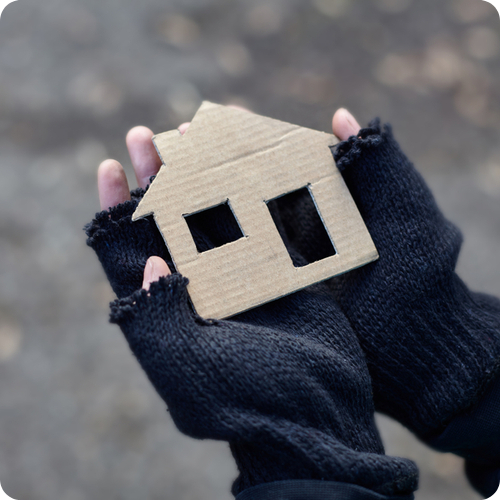 A research report released by the University of South Australia (UniSA) and Believe Housing Australia, highlights the need for new collaborative vision, thinking and approaches to deal with South Australia's housing crisis, which leaves thousands of people without a home each night.
A research report released by the University of South Australia (UniSA) and Believe Housing Australia, highlights the need for new collaborative vision, thinking and approaches to deal with South Australia's housing crisis, which leaves thousands of people without a home each night.
The report, Beyond the Housing Crisis - A Home for All, authored by UniSA's Dr Helen Dinmore and Dr Debbie Faulkner, noted that past government policies and a housing market gone rampant are two key causes of the current crisis that sees more than 6,000 people experiencing homelessness each night in SA, and more than 30,000 people on the State's social housing waiting list.
The report comes at a pivotal time, as a new State Government takes the reins in South Australia and the country heads into a federal election.
Professor Andrew Beer, UniSA Business Executive Dean, says the research report found rental availability and affordability to be at an all-time low across the country.
"Rental availability is at its worst in SA, where vacancy rates hit 0.2% in March 2022," Prof Beer says.
"It's evident that responses to the housing crisis must provide tailored solutions to high-risk cohorts with specific needs. Investment in housing for all delivers community-wide social and economic benefits on a wide range of measures including health, employment and education."
Michelle Gegenhuber, Believe Housing Australia Executive General Manager, says "it is evident, both through election polls and outcomes, and the results of the report survey, that there is a strong community appetite for change."
"Our survey data shows that South Australians are feeling heavily impacted by the housing crisis and don't think enough is being done. More than 90% of respondents are worried about the future of people locked out of the housing market and are concerned about homelessness in SA.
"A number of factors have contributed to the soaring levels of homelessness and housing demand we are seeing across the state. Low rent affordability and availability, low incomes, a skyrocketing property market and the effects of COVID-19 have all played their part in creating a perfect storm of high need and low supply.
"With secure employment increasingly hard to find, vulnerable groups like older people, low-income earners, First Nations peoples, youth, and people with illness or disability, are finding themselves forced into homelessness.
"We need a coordinated, focused response across government and multiple sectors. Everyone is already working as hard as they can, but the impacts will always fall short while we work within a failing system.
"We know that when people are securely housed, savings through increased social participation and reduced service use far outweigh the cost of investment."
Believe Housing Australia will host a series of solution-focused roundtables during 2022 for key government and sector representatives. Ms Gegenhuber said the objective of taking this collaborative approach is to develop, compare, contrast, and recommend strategies and actions that will ultimately deliver an efficient multi-provider housing system for the SA community.
Research report - key points:
- SA, like the rest of the country, is in the grip of a housing crisis. Our current system can't cope. We need an urgent, national coordinated response to address the root causes.
- Rental availability and affordability are at an all-time low across the country. Availability is at its worst in Adelaide, where vacancy rates hit 0.2% in March 2022.
- Responses to the crisis must provide tailored solutions to high-risk cohorts with specific needs, including youth, First Nations people, older people and people escaping domestic violence.
- Investment in housing for all delivers community-wide social and economic benefits. When people are securely housed, savings through increased social participation and reduced service use far outstrip the cost of investment.
- There is community appetite for change. Survey data shows South Australians feel impacted by the housing crisis and don't think the government is doing enough.






